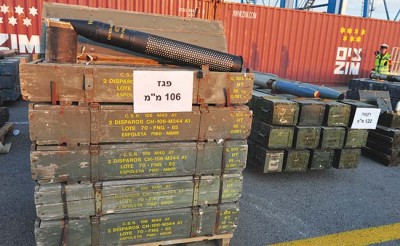
Manish K. Pandey | February 2016 Issue | The Dollar Business
What peace has to do with trade figures of a nation is anybody’s guess. A peaceful nation gets its populace to work like a family, its house is completely in order and all its policymaking activities function like clockwork. It’s a machine making every hour count. But some strange numbers get to make us think otherwise. It’s a deviation from the obvious.
The Arab Spring that started in early 2011 was an old wave in the new world that took all by surprise. From the general public to powerful dictators to the traders and consumers – what resulted between 2011 and 2012 made much difference. Strangely of the five nations commonly spelled out in all Arab Spring discussions, Egypt and Libya didn’t bother mixing conflict with business. Or so it seems. Between 2008 and 2013, exports from Egypt and Libya increased 11% and 17% respectively.
Let’s consider another example, of how conflict can impact trade between two neighbours – Syria and Turkey. Although after the onset of the civil war in 2011 relations between Syria and Turkey had come to an abrupt halt, the recent trade numbers between the two nations present a contrasting picture. Exports from Turkey to Syria instead of going down actually went up 11.8% – from $1.61 billion in CY2011 to $1.80 billion in CY2014. And why go that far. We all know that relations between India and Pakistan have been always been complicated, thanks to a series of historical and political events. But what’s surprising is that despite a troubled relationship, the trade between India and Pakistan have always flourished. In fact, bilateral trade between the two nations have gone up by 6.88% since 2011 – from $2.03 billion in CY2011 to $2.16 billion in CY2014.
To put matters into better perspective, as per the Institute for Economics and Peace (IEP) 2014 Peace Index, the top 10 nations where peace has fallen the most during the five-year period leading to 2013, include names like Syria, Libya, Bahrain, Côte d’Ivoire, Madagascar, Mexico, Oman, Rwanda, Tunisia, and Yemen. Exports from most of these ten markets have however risen. While Rwanda saw a rise of 148% during the five-year period, the rise was 72% in Bahrain, 11% in Côte d’Ivoire, 31% in Mexico and 38% in Oman. The situation hasn’t changed much in the 2015 version of IEP GIP, where these countries continue to remain some of the least peaceful zones on earth and the international trade continue to flow seamlessly through them.
It’s rather strange that countries where peace (constructed after referring to over 4,700 different indices, datasets and attitudinal surveys, including a factor like business environment and relations with trade partners and neighbours) indices are expected to be so low are those where exports are rising.
South Asia, as per the GPI 2015 is the least peaceful zone in the world. And of the seven nations categorised in the South Asia region, India lies in the bottom three. It is ranked more peaceful than just Afghanistan and Pakistan, and less peaceful than Bhutan, Nepal, Bangladesh and Sri Lanka. But given that the relation between peacefulness and trade performance seems to be “not so direct”, lack of peace in India is bad news for our Home Ministry but good for probably every other ministry!
Let us conclude with another fact that pops its head right out of the last year’s IEP GPI report. Of the ten countries which suffer from a “peace deficit” and have “the largest discrepancy between levels of democracy and peace” are big exporting nations like Mexico, India, USA and Thailand. Really, should we therefore conclude that internal conflict within a nation has little or nothing to do with its export competence?
Get the latest resources, news and more...
By clicking "sign up" you agree to receive emails from The Dollar Business and accept our web terms of use and privacy and cookie policy.
Copyright @2026 The Dollar Business. All rights reserved.
Your Cookie Controls: This site uses cookies to improve user experience, and may offer tailored advertising and enable social media sharing. Wherever needed by applicable law, we will obtain your consent before we place any cookies on your device that are not strictly necessary for the functioning of our website. By clicking "Accept All Cookies", you agree to our use of cookies and acknowledge that you have read this website's updated Terms & Conditions, Disclaimer, Privacy and other policies, and agree to all of them.

